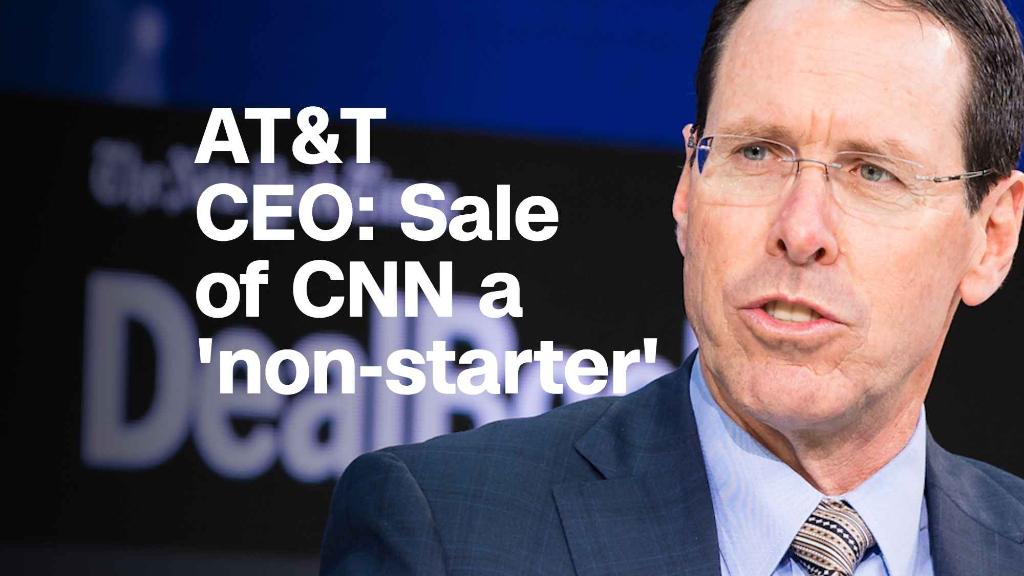
At a time of rapid change and consolidation in the media industry, the Justice Department's lawsuit over the AT&T-Time Warner combination is likely to put a pause on media deals and raise questions about this DOJ's antitrust standards.
"This pauses everything," Rich Greenfield, a media and technology analyst, told CNN. "Nobody knows the rules of the road."
The DOJ filed suit Monday to block AT&T's acquisition of Time Warner on the grounds that AT&T's control of both distribution (DirecTV) and content (channels like CNN, TNT and HBO) would create competitive harm and hurt consumers.
That argument is a departure from the DOJ's handling of non-competitive mergers dating back decades and could cause other distributors like Comcast and Verizon to put a hold on potential content acquisitions.
"This should be a cause of concern to anyone who is considering a major transaction," Kevin Arquit, a top antitrust lawyer who previously served at the FTC and DOJ and also advised DirecTV in its sale to AT&T, told CNN. "There has been a floodgate opened by bringing a lawsuit that has no defined boundaries."
When the Justice Department approved Comcast's acquisition of NBCUniversal, in 2011, distributors believed there was a green light for vertical mergers with content companies. In addition to AT&T's Time Warner deal, both Comcast and Verizon have approached 21st Century Fox in recent weeks about acquiring most of that company's assets. Now, analysts believe those talks will be put on hold.
Related: President Trump speaks on AT&T-Time Warner deal: 'not good for the country'
The DOJ's lawsuit also comes at a time when new tech players like Amazon, Google and Facebook already control both distribution and at least some content, causing executives at legacy organizations to complain about what they see as a double standard.
At a press conference about the lawsuit on Monday, AT&T CEO Randall Stephenson noted that "massive, large scale internet companies" like Amazon, Netflix, Facebook and Google are already creating original content and distributing it directly to the consumer.
"Netflix, they distribute their content to over 100 million customers. Amazon distributes its content to its Prime members... in excess of 60 million. Google and Facebook: They reach and distribute content to literally billions of customers," Stephenson said. "And the government contends that AT&T, with 25 million TV customers, and Turner, with a single digit share of all TV watched, will have unlawful market power? This defies logic, and it is unprecedented."
Of course, companies like Netflix and Amazon don't own the actual pipes that transmit the content. Nevertheless, they are able to profit from charging consumers for the platform on which their content is delivered.
Herbert Hovenkamp, an antitrust expert at the University of Pennsylvania, noted the discrepancy in the Justice Department's longstanding rules for companies that want to acquire content versus those that create content: "If AT&T had created HBO internally, there would be no way to prevent that because we don't have antitrust rules for that," he said.
Even so, tech giants are likely to take note of the Justice Department's stance on AT&T because of how it might affect their future acquisition plans.
There has long been a widespread belief that an Amazon or Apple will one day seek to acquire a legacy media company like 21st Century Fox or Time Warner. Now, it's not clear whether that would be permissible under the current Justice Department.
Media companies may not have full clarity on the DOJ's position until the AT&T-Time Warner case is decided in court next year. That means the potential freeze on mergers and acquisitions could last for several months.
"If you're saying distributors can't own content, could Facebook buy Fox, could Apple buy Fox? We just don't know," Greenfield said. "And if you're Fox, why would you go up for sale if you don't even know who the eligible bidders are?"


